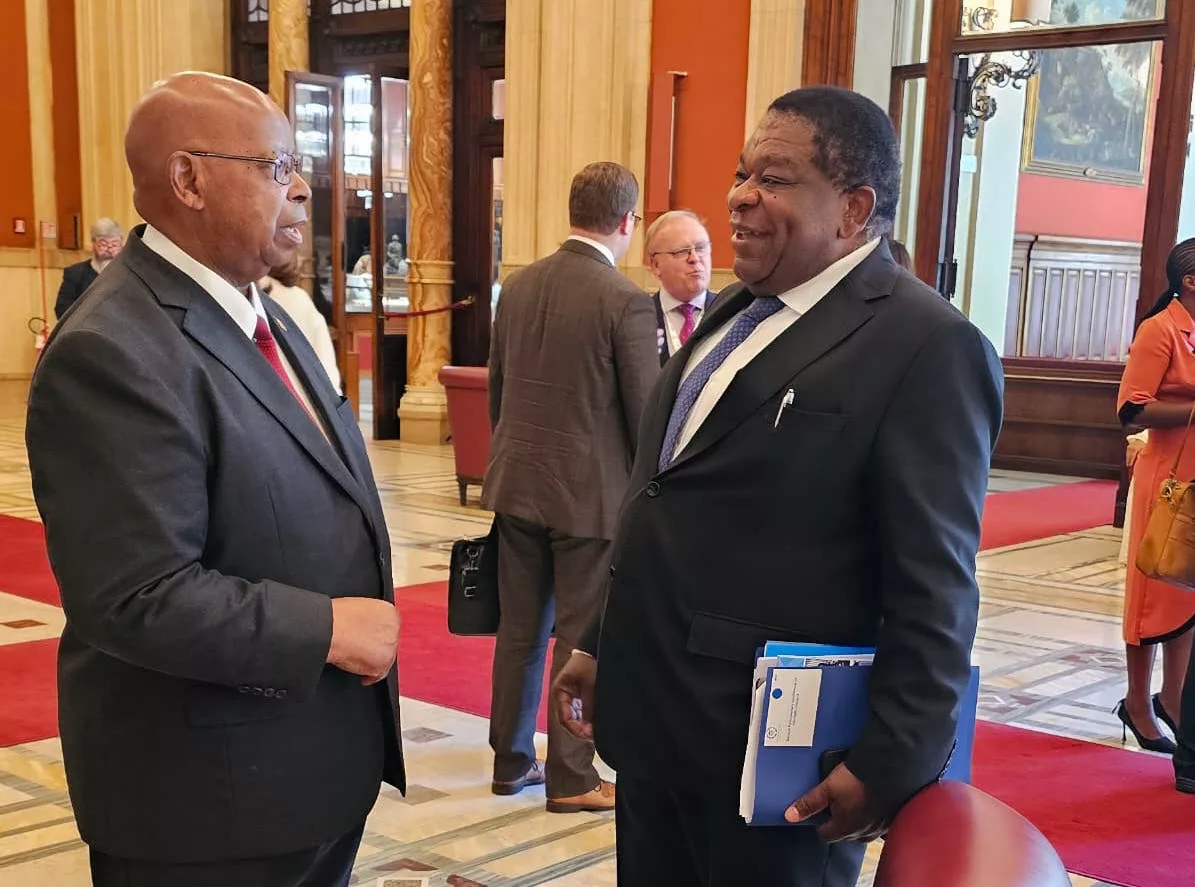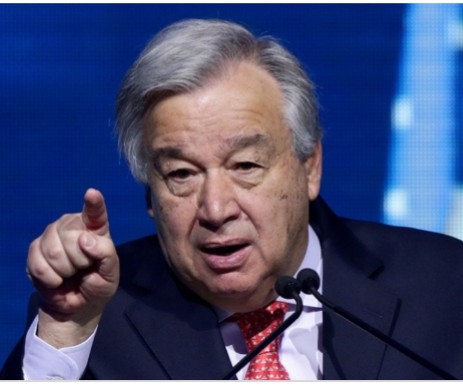|
Getting your Trinity Audio player ready...
|
Rome, Italy – Parliamentarians are encouraged to legislate effectively on issues that promote interfaith dialogue and respect for fundamental rights, Speaker of Parliament of Zimbabwe, Hon Jacob F.N. Mudenda has said.
On the second day of the General Debate held at Palazzo Montecitorio in Rome, Speaker Mudenda addressed the theme, “Parliamentarians in dialogue with religion and belief: strengthening trust and embracing hope for our common future.”
Speaker Mudenda’s departure point articulated the profound responsibility that parliamentarians bear in fostering dialogue with various religious beliefs, emphasizing the need for ethical and thoughtful leadership that embodies empathy and openness, an approach that is quintessential for cultivating an inclusive interfaith dialogue.
To contextualize issues and amplify the subject matter, Advocate Mudenda posed a critical question: What kind of dialogue should parliamentarians pursue with religion and belief? From thereon, he argued for a dynamic engagement that appreciates the complexities of different faiths.
“Without this understanding, there is a significant risk that parliamentarians may struggle to legislate effectively on issues that promote interfaith dialogue and respect for fundamental rights. A lack of oversight on executive actions could also lead to a weakened governance and a loss of public trust,” he opined.
To mitigate these critical challenges, Speaker Mudenda proposed the incorporation of Artificial Intelligence (AI) in fostering interfaith dialogue. He highlighted several transformative applications of AI such as advanced language translation which can bridge communication gaps among diverse cultural and linguistic groups. AI can also facilitate customized content delivery that encompasses a broad spectrum of religious perspectives and enhance traditional methods of doctrinal and scriptural analysis.
Moreover, Speaker Mudenda proposed that parliamentarians and religious leaders leverage AI for predictive data analytics to promote sustainable and more accurate scoping of the religious and beliefs ecosystem. However, he cautioned that with these digital technological advancements comes the critical responsibility of ensuring ethical governance of AI, keeping the human factor at the forefront of its applications.
Additionally, Speaker Mudenda emphasized the necessity for parliamentarians to earn public trust, which is crucial for instilling hope in humanity. Drawing inspiration from the late Pope Francis, the Speaker underpinned the notion that hope should inspire a desire for peace, especially in a world fraught with the tragedy of wars. He quoted Pope Francis, stating that peacemakers are “children of God,” urging diplomacy to relentlessly pursue opportunities for lasting peace.
Speaker Mudenda’s delivery undergirded that the role of parliamentarians in engaging with religion and belief is not only a duty but also a profound opportunity to strengthen trust and embrace hope for a shared future.
The Conference concluded with a ceremonial session whereby Rapporteurs presented reports from each thematic panel. The views were incorporated into the Rome Communiqué, which was subsequently unanimously adopted by the delegates. The Rome Communique encapsulates the insights and commitments made during the general debates, emphasizing the vital role of Parliamentarians in fostering constructive dialogue among various religions and beliefs as follows:
- Strengthening Trust: The Communiqué highlights the need for Parliamentarians to earn public trust within communities through inclusive engagements. Emphasizing empathy and understanding, the Rome Communique calls for collaborative efforts to address socio-economic challenges.
- Promoting Human Dignity: It reiterates the central tenet of respecting fundamental human rights and freedoms, particularly in the context of tolerance for worship and belief. Accordingly, Parliamentarians are urged to legislate in ways that uphold human dignity.
- Dynamic Engagement: The document advocates for a dynamic and informed approach to interfaith dialogue, encouraging parliamentarians to engage deeply with the intricacies of different faiths to avoid misunderstandings so as to foster respect.
- Use of Technology: The Communiqué recognizes the transformative potential use of digital technology, particularly Artificial Intelligence, in enhancing interfaith dialogue. It suggests leveraging AI for better communication, content delivery and scriptural analysis.
- Ethical Governance: It emphasizes the responsibility of parliamentarians to ensure that digital technological advancements are governed ethically, prioritizing the human element intervention in AI applications.
- Commitment to Peace: Drawing inspiration from global leaders, the Communiqué underlines the essential need of promoting peace and reconciliation, particularly in regions affected by conflict. It further calls for continual diplomatic efforts to facilitate understanding and harmony among diverse religious communities.
- Collective Action: Lastly, the Communique encourages parliamentarians to work collectively, transcending political and religious boundaries in order to cultivate an environment of mutual respect and cooperation.
The Rome Communiqué serves as a call to action for Parliamentarians worldwide to embrace their role in promoting interfaith dialogue and building a hopeful, inclusive future for all.
Final remarks were provided by the IPU President, Dr. Tulia Ackson, who highlighted the need for continued dialogue in the quest for global peace wherein she touted the contemporary responsibility of Parliaments within the ambit of Parliamentary Diplomacy in contributing to global peace and security.
Dr Ackson also extolled Italy for being a sterling and gracious host for the second Interfaith Dialogue. The Honorary IPU President, Senator Pier Ferdinando Casini, concluded on behalf of the Host Parliament, by extending accolades to all delegates for their commitment to world justice, pivotal to the achievement of global peace. Senator Casini concluded by lauding the high-level discussions that were witnessed during the Interfaith Dialogue, a testimony of the commitment of Parliamentarians to advancing peace initiatives and fostering interfaith collaboration.






